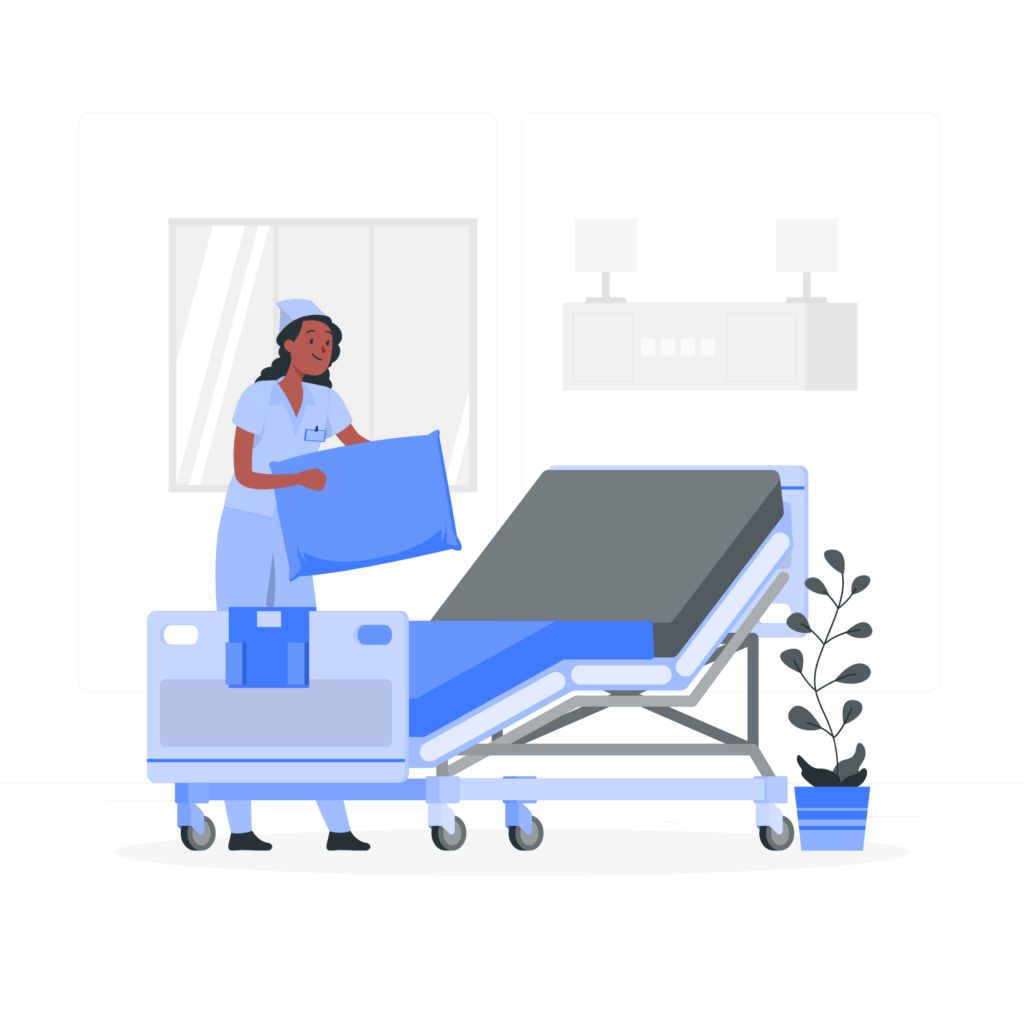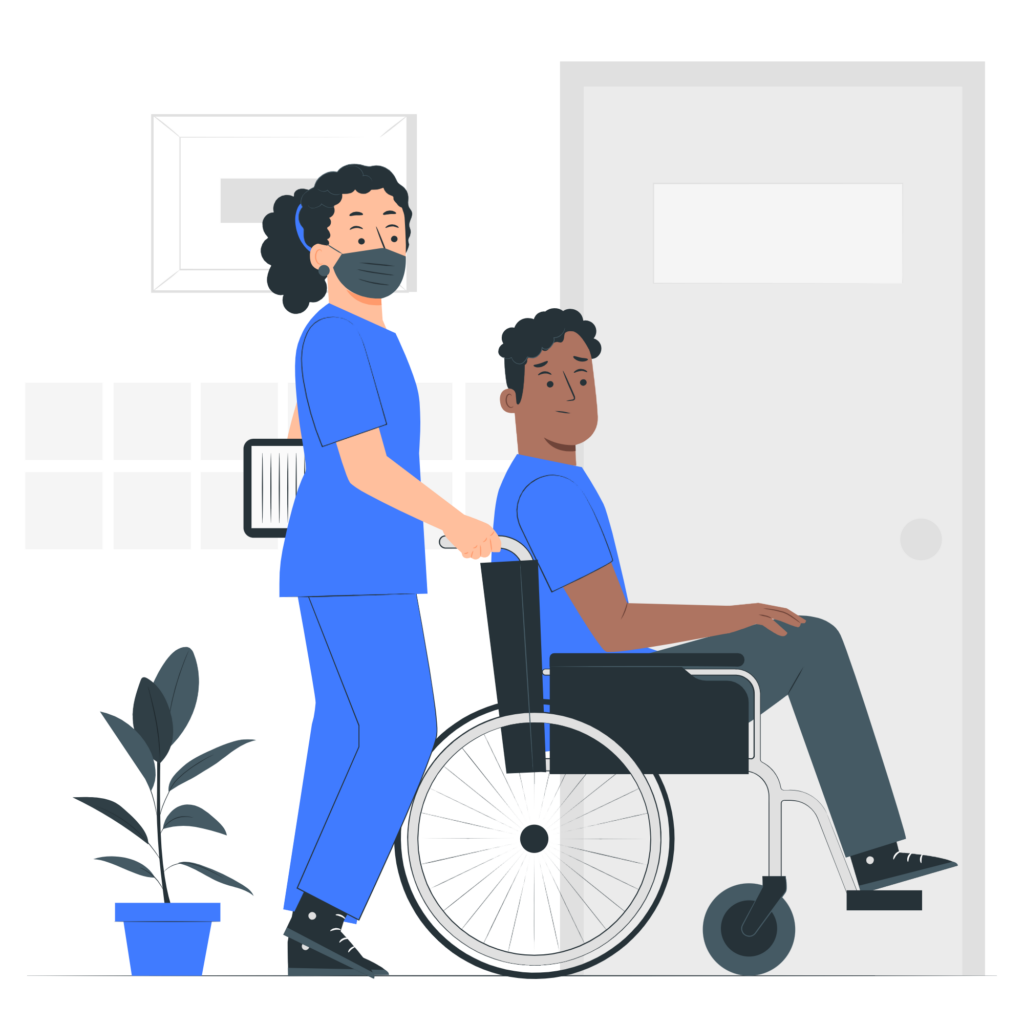So, what’s in it for you as a nurse? Quite a lot. With a compact state nursing license, you can:
- Dodge the hassle and expense of obtaining multiple licenses
- Experience a career with more flexibility and mobility
- Lend your skills during emergencies, even across state borders
- Tap into telehealth and online educational opportunities
That sounds like a sweet deal, right? But hang on, it’s not a universal license for all. There are specific requirements and steps to be undertaken. This article will serve as your step-by-step guide to acquiring a compact state nursing license.
The Nursing Compact Application Process: Documents Checklist
Before we dive in, let’s sort out the paperwork. Here are the documents you need to apply for the nursing compact license:
Proof of Residency: You must confirm your living status in a compact state. This includes an intention to make it your primary residence. To prove this, you can submit any of the following:
- Driver’s license
- Voter registration card
- Federal income tax return
- Military form no. 2058
- A W2 from your employer
Current and Active RN or LPN License: You need a valid and unimpeded license from your home state, which needs to be a compact state. You can check the status of your license on the Nursys database.
Criminal Background Check: A state and federal fingerprint-based criminal background check is part of the process to ensure you meet the NLC’s licensure requirements.
Application Fee: There’s a non-refundable fee involved when applying for a compact state nursing license. This fee varies from state to state, and you can find more details on your state board of nursing’s website.
Remember, these are just the basics. Some states may have additional requirements, so checking with your state board of nursing before submitting your application is a smart move.

How to Apply for a Compact State Nursing License Online?
Ready to make the digital leap and apply for a Compact State Nursing License online? Good choice! This is the quickest and most efficient route to join the NLC and take full advantage of its benefits.
So, how to go about it? Start by heading over to your home state’s Board of Nursing website. They’ve got all the instructions laid out for you. You’ll need to provide your details, residency proof, a current and active RN or LPN license, and evidence of your criminal background check. Also, don’t forget the application fee.
There are a whole host of perks to applying online:
- Convenience: You can apply when it suits you, from the comfort of your home or even a café. There’s no snail mail or waiting around for documents to be processed. Plus, if you need to update your information – like a change of address or name – it’s as simple as a few clicks.
- Speed: The fast lane to getting your license, you’ll be able to start work in other compact states sooner.
- Security: You can keep your personal information safe from identity theft on a secure online platform.
And don’t worry if you’re more of a paper person, you can always request an application form from your home state board of nursing and apply by mail or in person.
Nursing Compact States: Moving Scenarios
When it comes to moving, there are a few scenarios to consider:
Compact to Compact States: If you’re shifting your residency from one compact state to another, apply for licensure by endorsement in the new state. Once you meet all requirements, you’ll get a multi-state nursing license from the new state, and your previous one will turn into a single-state one.
Non-Compact to Compact States: In this case, apply for an unrestricted RN license in your new state. Once you have it and meet the eligibility requirements, you can upgrade it to a multi-state compact license.
Compact to Non-Compact States: In contrast to the previous scenario, you’ll need to surrender your multi-state status. After applying for licensure by endorsement in the new state and fulfilling the requirements, you will only have a single-state license in your new state.
Non-Compact to Non-Compact States: This requires applying for a license by endorsement, and you’ll end up with a single-state RN license for the new state.
Whether you start this process before or after your move is up to you. But remember, the early bird gets the worm, so starting early can ensure you’re ready to work as soon as you relocate.
Keep in mind, if you’re moving from a non-compact state and apply early, you may first get a single-state license, or your application might be paused until you provide proof of residency, and then you can be issued a multi-state license.
Which States are Part of the eNLC?
Here’s a comprehensive listing of all states currently impacted by multi-state compact licensing.
- Alabama
- Arizona
- Arkansas
- Colorado
- Delaware
- Florida
- Georgia
- Guam (allows nurses with eNLC licenses to practice under their multi-state licenses)
- Idaho
- Indiana
- Iowa
- Kansas
- Kentucky
- Louisiana (RNs and PNs)
- Maine
- Maryland
- Mississippi
- Missouri
- Montana
- Nebraska
- New Hampshire
- New Jersey
- New Mexico
- North Carolina
- North Dakota
- Ohio
- Oklahoma
- Pennsylvania (Awaiting implementation)
- South Carolina
- South Dakota
- Tennessee
- Texas
- Utah
- Vermont
- Virginia
- Virgin Islands (Awaiting implementation)
- Washington
- West Virginia (RNs and PNs)
- Wisconsin
- Wyoming
Twenty-four original NLC states have enacted the eNLC or have pending legislation. Eight additional states have pending legislation waiting for approval before joining the eNLC. Pennsylvania and the Virgin Islands have passed legislation allowing for the eNLC but is currently awaiting implementation.

Benefits of a Compact State Nursing License
There is a host of benefits that come with holding a Compact State Nursing License. Here are some compelling reasons why it could be an advantageous move for your nursing career:
- Enhanced Career Flexibility: With this license, you can practice across 40 states and two territories within the compact, without obtaining multiple licenses. This opens a wide array of job opportunities for you, from working in bustling urban hospitals to rural clinics or specialist practices. It also allows you to lend a helping hand during emergencies or disasters across state lines.
- Save Time and Money: The process of applying for multiple licenses is often a complex web of various forms, documents, fees, and waiting periods. By contrast, a compact state nursing license requires a single application and fee in your home state, saving you valuable time and resources.
- Increased Job Opportunities and Earning Potential: Holding a compact state nursing license can make you an attractive candidate for employers seeking qualified nurses with the flexibility to work across multiple states. This could open the door to more job prospects and potentially higher salaries in states with high demand for nurses.
- Professional Growth: Experiencing different healthcare systems, policies, practices, and cultures can provide you with invaluable insights, helping you broaden your skills and knowledge as a nurse.
How to Practice Nursing in Multiple States Without eNLC
If you’re eager to practice in multiple states, but the compact state nursing license isn’t quite what you’re looking for, you have other options:
Nursing License by Endorsement: This allows you to obtain a license to practice in different states without additional nursing education or testing. However, requirements vary by state. Generally, you’ll need an active nursing license, meet the new state’s education and exam criteria, and provide verification of your license, education, and experience. Plus, there’s usually a criminal background check and potentially other state-specific requirements.
This route might be preferable if you’re considering working in a non-compact state, which would require a separate license, or if you’re unable to meet the NLC’s eligibility requirements for a multi-state license.
Nursing License by Exam: Another viable option, especially for those new to the profession or those without current active licenses.
In essence, your choice hinges on your career aspirations, preferred geographical area of practice, and personal circumstances. It’s always beneficial to consider all available options before deciding on the path that best aligns with your nursing career goals.

Keeping Your Compact State Nursing License Active
Maintaining your compact state nursing license involves more than simply holding onto it. To keep it valid and active, several key steps are necessary:
License Renewal: It’s crucial to renew your license before its expiry date to prevent any practice interruptions or potential penalties. License renewal is typically carried out online through the Nursys database or your home state Board of Nursing’s website. The renewal process involves paying a fee and updating any relevant information. Note that renewal fees may differ across states.
Continuing Education: Pursuing ongoing education is a requirement for keeping your license active. During each renewal period, a certain number of continuing education hours are required, the specifics of which may vary depending on the state and your specialty. Be sure to check the specific requirements with your home state’s board of nursing.
Read more about Certificates of Added Qualifications.
Updating Personal Information: If there are any changes in your name, address, or employment status, it’s vital to notify your home state board of nursing within the stipulated timeframe, typically 30 days. Ensuring that your licensing information is up-to-date allows you to receive any crucial notifications or updates. Supporting documents may be required to validate the changes.
Complying with State Laws and Regulations: As a compact state nursing license holder, you are expected to comply with the laws, standards, and guidelines of each state you practice. This means you need to be familiar with the Nurse Practice Act, code of ethics, and disciplinary procedures for each state.
How to Verify Your Compact State Nursing License
Verifying your compact state nursing license is a straightforward process, and it can be carried out through several online platforms:
Nursys e-Notify System: This tool provides automated notifications about your license status and expiration date. After creating a free account on nursys.com, you can receive email or text alerts about your license status changes such as renewals, expirations, disciplinary actions, or endorsements. It also allows for managing multiple licenses from different states.
Nursys QuickConfirm Tool: This online tool offers a comprehensive report of your license information and disciplinary history. It provides details like your license type, status, expiration date, and multi-state privilege. The report can be printed or downloaded for verification purposes.
License and Certificate Lookup: Each state’s Board of Nursing website typically features an online lookup tool that provides a summary of your license details, including issue date, status, expiration date, and disciplinary actions.
These resources can help ensure your compact state nursing license remains valid, enabling you to practice across multiple states with the required standards and regulations.
Summing Up
In conclusion, a compact state nursing license is a powerful tool for nurses who desire flexibility, mobility, and a broader scope in their careers. The convenience of practicing across multiple states under one license, time and cost savings, increased job opportunities, and enhanced professional development are just some of the many benefits that this licensure option offers.
Navigating the processes of obtaining, maintaining, and verifying a compact state nursing license may seem intricate, but understanding the NLC requirements and your home state’s guidelines can significantly ease this journey. From the online application process to staying up-to-date with continuing education, and the ease of online verification systems, the compact nursing license is designed with the modern, mobile nurse in mind.
Alternatives such as obtaining a license by endorsement or examination are also available for those who wish to practice in non-compact states or if specific NLC requirements aren’t met.
Regardless of the licensure route you take, staying informed, proactive, and adaptable will ensure that you continue to make the most of your nursing career. As healthcare continues to evolve and technology advances, the opportunities for nurses are boundless. So, whether you’re a seasoned professional or a newly graduated nurse, consider how a compact state nursing license might align with your career goals and help you make a greater impact in the world of healthcare.
FAQs about a Compact State Nursing License
-
How long does it take to get a compact state nursing license?
The processing time may vary depending on the state board of nursing, but it usually takes between two to six weeks. -
How much does it cost to apply for a compact state nursing license?
The application fee may vary depending on the state board of nursing, but it usually ranges from $50 to $200. -
Which states are compact nursing states?
Alabama, Arizona, Arkansas, Colorado, Delaware, Florida, Georgia, Guam, Idaho, Indiana, Iowa, Kansas, Kentucky, Louisiana, Maine, Maryland, Mississippi, Missouri, Montana, Nebraska, New Hampshire, New Jersey, New Mexico, North Carolina, North Dakota, Ohio, Oklahoma, Pennsylvania, South Carolina, South Dakota, Tennessee, Texas, Utah, Vermont, Virginia, Virgin Islands, Washington, West Virginia, Wisconsin, and Wyoming. -
How do I get a multistate nursing license?
A multistate nursing license is another term for a compact state nursing license. You can get one by applying through your home state board of nursing if you live in a compact state or by declaring a compact state as your primary state of residency if you live in a non-compact state.



